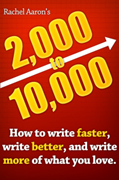
I’m an extreme planner. By this I mean I start every day with a checklist, and I slash my way through it like I’m bringing in the harvest. Which is exactly what I’m doing, I suppose.
I have a master plan that includes an overall 5-year view, a more detailed 2-year view (grouped into quarters), a 1-year view (grouped into months), and weekly views (transferred to a separate planner that groups the weeks into daily views).
I call it my roadmap. I update it every year – reviewing the previous year and moving the specifics (e.g., removing the past year, adding the fifth one out) and revising my goals. Things change. Life happens. Plans get adjusted. We move on.
Last December, I put together a tight plan for 2020 incorporating everything I wanted to accomplish. Here’s roughly what it looked like:
- Various tasks with my day job (goal-setting per corporate mandate)
- 1 novel (in progress, about 75%) completed
- 1 screenplay (in progress, about 90%) completed
- 1 novel (outlined) to rough draft stage
- 1 series of ebooks (6 books, in rough draft stage) completed and published
- 2 cruises (one in May, one in October)
- 1 trip to the Outer Banks (in July)
Besides all that, I brainstormed monthly fun activities with the kids (individually … so we could spend quality time alone together) and put them into envelopes, which they would open on the first day of each month and see what was in store.
2020 was going to be my year. My goals might have seemed a bit aggressive, but I was eager and excited and down for it. I was all: “Come on, 2020, bring it on! I’m ready!”
Needless to say, plans fizzled out rather quickly due to circumstances beyond my control in ways no one had a clue were about to happen.
- Who knew we’d barely be into the new year before a pandemic would shut everything down?
- Who knew the shutdown would affect almost every sector of the economy, causing layoffs – and that I’d be hit with the euphemistic RIF (reduction-in-force)?
- Who knew I’d grow – in a remarkably short period of time – to despise words and phrases like “essential” and “shelter in place” and “we’re all in this together” and “flatten the curve”? (Ok, given my irritation with buzzwords, that didn’t surprise me. But still…)
And yet. AND YET. I refuse to fall into the Pit of Pessimism. Sure, we’re halfway through a crazy year that no one could have foreseen, but I’ll be honest: It hasn’t been a complete loss. I did learn some things. True, most of them I’d already known. But it took the extreme nature of this year to remind me and to hammer the lesson home. Which isn’t bad.
Things like:
- Flexibility might be a better attribute than ability. So you get knocked down. That happens to everyone at various times. What’s important is how quickly you can get back up. Learn that life skill and apply it.
- Being debt-free is probably the most sane and mature goal of all. I am channeling my inner Dave Ramsey here. If things get wacky all of a sudden (like … you know … the way they did …?), it’s so much easier to deal with if you don’t have a ton of debt that required your day job to stay even-keel.
- I might say I need peace and quiet to work effectively, but that might not be true. Being without human contact for a long period of time has made me appreciate small moments of connection. I will never again take that for granted.
- Making plans, even if they get disrupted in the zaniest way possible, is still a worthy endeavor. Just because I couldn’t rock the heck of out 2020 with my bullet list doesn’t mean the list wasn’t fabulous. I will simply have to stretch the goal line out a bit. It’s all good.
I expect that my review this December will be quite the introspective journey. And I can’t say I won’t be glad to see this year move on into the history books. It’s my hope that when I make my aggressive plans for 2021, I’ll do it with a measure of the wisdom I acquired this year.
At least that’s the thought that might get me through the rest of this year.





 I’m always on the hunt for better time management tools, and I found one in a book by Rachel Aaron called “2,000 to 10,000: How to write faster, writer better, and write more of what you love.” Check out her
I’m always on the hunt for better time management tools, and I found one in a book by Rachel Aaron called “2,000 to 10,000: How to write faster, writer better, and write more of what you love.” Check out her 
